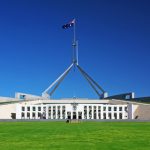Lack of Ministerial Accountability Stifles Prosecution

The Australian Federal Police (AFP) advised federal prosecutors last month that there was sufficient evidence to bring criminal charges as a result of leaks from Senator Michaelia Cash’s office to the media regarding raids upon the offices of the Australian Worker’s Union (AWU).
However, prosecutors ultimately decided to reject that advice and not to press charges, claiming the failure of Senators Cash and Michael Keenan to assist police in their investigations together with suspicions that evidence had been destroyed made it impossible to build a strong enough case.
The debacle has raised concerns about the lack of accountability at the federal level, with politicians effectively stifling the role of the prosecutor while at the same time spending hundreds of thousands of dollars of legal costs from the public purse to help them avoid scrutiny.
The saga has also renewed calls for a federal independent commission against corruption (ICAC).
The leak
In October 2017, the AFP conducted raids upon AWU offices in Sydney and Melbourne.
The raids were in response to complaints from the offices of Senator Michaelia Cash that donations made to the AWU while Opposition Leader Bill Shorten was its national secretary may have breached guidelines.
Crews of journalists seemingly inexplicably beat the police to raids, ensuring maximum exposure and scrutiny of the opposition leader.
Senator Cash initially denied the leak had anything to do with her office, but was later forced to recant her statement after their staffers revealed the tip indeed emanated from them.
Ms Cash’s former media adviser, David De Garis, fell on his sword and admitted to the leaks, saying he was authorised “authorised” to do so.
Refusal to assist
A Senate committee has now heard that Ministers Cash and Michael Keenan twice refused to provide witness statements to police in relation to the leaks.
AFP deputy commissioner Leanne Close testified that police sought to speak with and take statements from both ministers in relation to the investigation. The minsters refused and, instead, sent the AFP letters to explain their involvement.
Prime Minister Scott Morrison has defended the conduct, saying their response was sufficient. “They provided a response and the police have accepted that response and haven’t sought, I’m advised, any further statement,” he told the media.
However, Ms Close disagrees, saying the written response impeded police investigations, while Commonwealth solicitor Andrea Paveleka made clear that the absence of witness statements was “an important factor” in the decision not to prosecute.
Destruction of evidence
Perhaps of even greater concern is the AFP’s testimony that evidence of leaks “may have been destroyed” by the ministers’ offices.
Indeed, Mr De Garis admitted under oath to deleting three text messages with a colleague in Michael Keenan’s office about the raids before he gave his phone to police.
There are suspicions other evidence may also have been destroyed.
And the public pays
The Committee also heard the Attorney-General’s department approved the payment of $288,000 on Senator Cash’s legal costs in the proceedings.
This included attempts by her legal team to oppose a subpoena for her to attend and give evidence – which ultimately failed.
It has been suggested that the use of taxpayer money to impede the investigation of potential criminal offences is against the public interest.
Politicians evade laws against leaking confidential information
The law contains many provisions which prohibit individuals from disclosing information that might reveal abuse, crime and corruption in government departments and agencies.
For example, section 42 of the Australian Border Force Act 1995 (Cth) makes it a crime punishable by up to two years in prison for an “entrusted person” to disclose information obtained in the course of his or her employment, which may be used to prohibit medical practitioners from – for instance – disclosing information about the atrocious conditions in off-shore immigration detention camps.
Section 70 of the Crimes Act 1914 (Cth) prescribes a maximum penalty of two years’ imprisonment for the communication or disclosure of information obtained in the capacity of a Commonwealth officer without approval. The legislation gives a broad definition of Commonwealth officer, which includes employees of federal agencies and departments.
The section has been used for years to silence, investigate and prosecute a range of government workers who have attempted to reveal abuses and corrupt practices within federally controlled agencies.
For example, it was used 2014 by then Immigration Minister Scott Morrison to expel 10 members of the charity ‘Save the Children’ from Nauru Detention Centre for speaking out about the sexual abuse of children in that facility.
The section was also used to silence and investigate former detention centre psychiatrist Dr Peter Young after he was openly critical of the “appalling conditions” faced by detainees.
The section has further been used to successfully prosecute:
- an officer of the Australian Customs Service for providing reports to journalists about security issues at Sydney Airport;
- an officer of the Office of Indigenous Policy Coordination for disclosing information relating to Commonwealth Indigenous policy to a member of the Mutitjulu community in the Northern Territory;
- an officer of the Australian Taxation Office for providing documents containing summaries of taxpayers and tax agents to a private business associate; and
- an officer of Centrelink for disclosing personal details of Centrelink customers to a firm which offered to pay for information leading to the whereabouts of various people.
The use of the section has always been notoriously selective, with federal government agencies typically pushing for prosecutions in cases where unlawfully leaked information is damaging rather than where it but promotes its interests.
In the case of Senators Cash and Keenan, it seems the laws against leaking confidential information do not extend to those who are in power and have deep pockets, even when these people are supposed to be serving the public and taxpayers are footing their legal bills.







